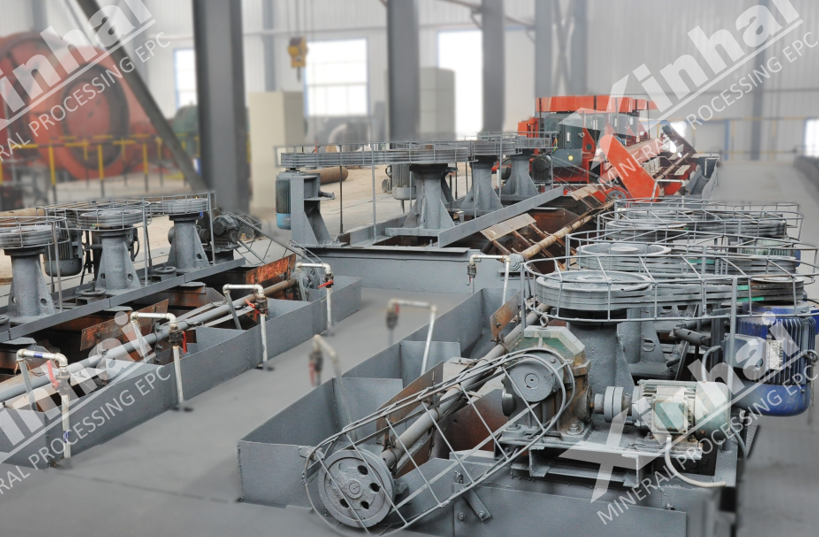Four flotation methods commonly used in copper-nickel ores
2024-05-16 Xinhai (2040)
2024-05-16 Xinhai (2040)
If you have any questions, please contact us through the following ways, we will give you more and better assistance!

Among the beneficiation methods of copper-nickel sulfide ores, flotation is the most important one, and magnetic separation and gravity separation are often used as auxiliary beneficiation methods.
A basic principle for determining the copper-nickel ore flotation process is to give priority to copper entering the nickel concentrate and not to select nickel entering the copper concentrate. Since the nickel in the copper concentrate is lost during the smelting process, the copper in the nickel concentrate can be recovered as much as possible.
The four commonly used flotation methods for copper-nickel ores are as follows:
This process can be used when the copper content in the ore is much higher than that of nickel. Pump the slurry into the stirring tank, add sulfide inhibitors and copper collectors, and send the mixture to the flotation machine to obtain copper concentrate and nickel-containing tailings. Nickel-containing tailings are flotated to obtain nickel concentrate or copper-nickel concentrate.
This method can be used when the copper content is lower than the nickel content. The slurry is pumped into the flotation machine to obtain copper-nickel concentrate. The copper-nickel concentrate is further processed to obtain low-nickel copper concentrate and copper-containing nickel concentrate. Nickel matte is obtained by smelting nickel concentrate. The nickel matte is then separated by flotation.

There are many types of nickel minerals contained in copper-nickel ore, such as pyrite, acicular pyrite, etc. These nickel minerals also vary in their floatability.
When the floatability differs greatly, copper-nickel concentrate is obtained by flotation first. The tailings then undergo another round of flotation to recover nickel-containing minerals with poor floatability.
➢For copper-nickel ores with coarser particle size and not very tightly embedded, the copper-nickel concentrate separation process is often used. Currently, the separation methods commonly used in this process include lime-cyanide method, lime-sodium sulfide method, pulp heating method, bisulfite method, etc.
➢For copper-nickel ores with fine particle size and very dense embedded distribution, the matte nickel separation process is often used.